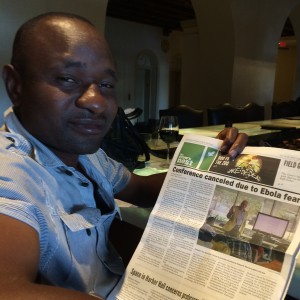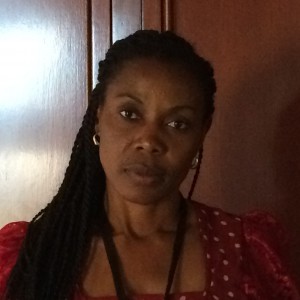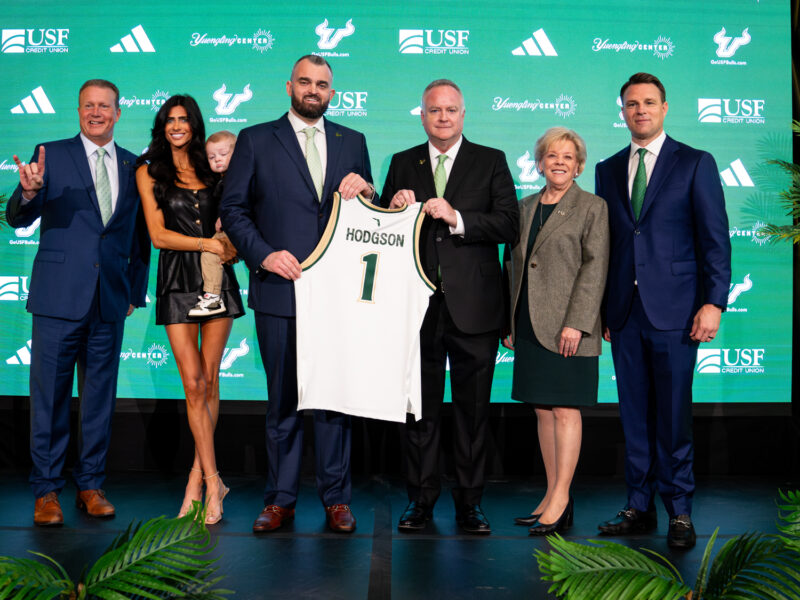Four of the 12 African journalists who were rebuffed by USF St. Petersburg offered a mixed reaction Friday as they began three days of training at the Poynter Institute for Media Studies and a weekend of sightseeing in the bay area.
They used words like “surprised,” “overreaction” and “prudent” to describe their feelings about the university’s decision to back out of hosting the journalists because of what Vice Chancellor Han Reichgelt called “upmost caution due to concerns” about the Ebola virus.
The Africans are among a hundred foreign journalists visiting the United States under the U.S. State Department’s Edward R. Murrow Program. Each year the department joins several American universities to offer cultural exchange and training in journalism policies and practices. This would have been USFSP’s fifth year as a host and participant.
When the university backed out, the Poynter Institute agreed to step in.

Patrice Makova, news editor of The Standard, a newspaper in Zimbabwe, said he was impressed with the first day’s program at Poynter and called USFSP’s decision “an overreaction.”
He said he knows how Ebola is transmitted, and he would not have been worried about the journalists from Sierra Leone and Liberia “as long as they did not have any symptoms.”
The State Department delayed the visits of Murrow journalists from those Ebola-affected countries after USFSP’s cancellation.
Aman Sisay, executive editor of Ethiopian Business Review, said the decision surprised him.
“The nearest affected country, Liberia, is more than 5,510 kilometers (3,424 miles) away from Ethiopia,” he said.
Ada Anyagafu, foreign correspondent for Vanguard Media Limited in Nigeria, said she could see the university’s position and thought it was “prudent.”
“I understand the feelings of the parents” of USFSP students, she said. “The issue is not being reported well by the media. Because of this, people have become afraid.”

Bernard Avle, director of news and programming for Omni Media in Ghana, told Bay News 9 that the African delegation got letters of “personal apology” from Reichgelt. That was “really, really, really big of him to do that,” said Avle.
He also said he was not upset by the university’s decision, according to a blog post by Benjamin Mullin of Poynter.
Meanwhile, in a “campus conversation” about the cancellation on Thursday, Reichgelt said he had dropped off letters to the journalists “welcoming them and explaining the decision” to cancel.
He and Deni Elliott, chair of the Department of Journalism and Media Studies, stressed that the decision came after they became convinced that the university could not offer “a quality program” for the visiting journalists.
“Crucial people (from USFSP) would not be involved” because of Ebola fears, Reichgelt said.
He and Elliott said they were sad that USFSP is not hosting this year.
Elliott mentioned philosopher John Mill, who says we need to listen carefully to opinions that are not our own.
“Our goal is not to reach a consensus or convince people to change their minds,” she said, “but to listen with open hearts and minds.”
About 35 people, including a professor and her media class, attended the gathering at the university library, and a few criticized the university’s decision.
“I think it’s silly that you guys canceled it,” said Choya Randolph, 18, a mass communications major. “Africa is huge . . . if someone has Ebola in Dallas, does that mean people from Dallas should not come here?”
Amanda Gillum, 25, a graduate student in environmental science and policy who had been doing schoolwork in the library, said she “couldn’t help but come over” and join the conversation. She said she was concerned that canceling the trip will increase fear of Ebola.
“Africans are Africans—they are not the face of Ebola,” she said. Later, she commented that “there is no way of knowing who from other countries has interacted with people who have Ebola, and we are going to alienate a continent already more than it is.”
Rose Lee, a graduate student in journalism and media studies, applauded the decision to cancel the university’s participation. But Salem Solomon, also a journalism graduate student—who criticized the decision in columns in the Tampa Bay Times and The Crow’s Nest – said afterward that this type of discussion should have come before the university made its decision.
Solomon and Randy Carlson, another journalism graduate student who supported the decision and said he thought the university had no other choice, were each allowed five minutes to state their positions early in the “campus conversation.”
Goliath Davis, a former St. Petersburg police chief and deputy mayor who has been called one of the city’s most influential African-Americans, said that “these are not necessarily opposing opinions” but are “on the same continuum.”
Davis, 63, was asked by The Crow’s Nest after the conversation to summarize his comments.
“The decision has been made because fear from some of the partners influenced the decision,” said Davis, a senior adviser to the university. “So, the real question is: How do we learn so that it is not repeated in the future? This is one of the ways the larger community gains sufficient information so it does not operate out of fear and ignorance.”


